|
Books Should Be Free Loyal Books Free Public Domain Audiobooks & eBook Downloads |
|
|
Books Should Be Free Loyal Books Free Public Domain Audiobooks & eBook Downloads |
|
History Books |
|---|
|
Book type:
Sort by:
View by:
|
By: A. T. Mahan (1840-1914) | |
|---|---|
 Lessons of the war with Spain and other articles
Lessons of the war with Spain and other articles
| |
By: John S. Jenkins (1818-1852) | |
|---|---|
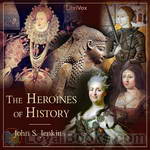 The Heroines of History
The Heroines of History
A look at some of the famous women in European history. Includes biographies on Cleopatra; Isabella of Castile; Joan of Arc; Maria Theresa; Josephine; Elizabeth of England; Mary of Scotland; Catherine of Russia; Marie Antoinette; and Madame Roland. Mr. Jenkins, whose name remains on the title-page of this volume, was prevented from finishing the work for a long time by sickness, and finally by death. The first chapter is from his pen, and the rest has been written according to his instructions by one whom he selected, and who has had access to works rare in this country, such as Monstrelet's Chronicles, Tooke's Life of Catherine II... | |
By: Aristophanes (446BC - 385BC) | |
|---|---|
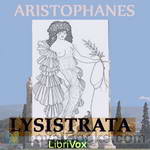 Lysistrata
Lysistrata
Lysistrata read by the Classics Drama Company at DePaul. The Classics Drama Company at DePaul is a new gathering of Thespians and Classicists dedicated to performing and understanding ancient literature. If you live in Chicago and attend DePaul University, we welcome new additions to our group. Contact Dr. Kirk Shellko (kshellko@depaul.edu), if interested.First performed in classical Athens c. 411 B.C.E., Aristophanes’ Lysistrata is the original battle of the sexes. One woman, Lysistrata, brings together the women of all Greece, exhorting them to withhold sexual contact from all men in order that they negotiate a treaty... | |
By: William E. B. Du Bois (1868-1963) | |
|---|---|
 The Negro
The Negro
| |
By: Watkin Tench (1758-1833) | |
|---|---|
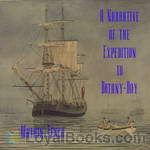 A Narrative of the Expedition to Botany-Bay
A Narrative of the Expedition to Botany-Bay
Watkin Tench was an officer of the British Marines in the First Fleet to settle NSW. This is an interesting and entertaining account of his experiences during that time (Introduction by Tabithat) | |
 A Complete Account of the Settlement at Port Jackson
A Complete Account of the Settlement at Port Jackson
| |
By: Dudley Landon Vaill (1873-?) | |
|---|---|
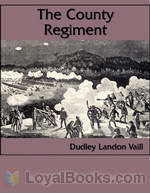 The County Regiment
The County Regiment
A sketch of the second regiment of Connecticut volunteer heavy artillery, originally the Nineteenth Volunteer Infantry, in the Civil War. | |
By: Richard Francis Burton (1821-1890) | |
|---|---|
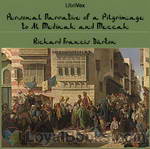 Personal Narrative of a Pilgrimage to Al-madinah and Meccah
Personal Narrative of a Pilgrimage to Al-madinah and Meccah
Sir Richard Francis Burton (1821 – 1890) was an English explorer, translator, writer, soldier, orientalist, ethnologist, linguist, poet, hypnotist, fencer and diplomat. He was known for his travels and explorations within Asia and Africa as well as his extraordinary knowledge of languages and cultures. According to one count, he spoke 29 European, Asian, and African languages.Burton's best-known achievements include traveling in disguise to Mecca, The Book of One Thousand Nights and A Night, an... | |
By: Peter H. Ditchfield (1854-1930) | |
|---|---|
 Old English Sports, Pastimes and Customs
Old English Sports, Pastimes and Customs
| |
 English Villages
English Villages
| |
By: Richard Francis Burton (1821-1890) | |
|---|---|
 First Footsteps in East Africa
First Footsteps in East Africa
| |
By: Peter H. Ditchfield (1854-1930) | |
|---|---|
 Memorials of Old London Volume I
Memorials of Old London Volume I
| |
By: Nennius | |
|---|---|
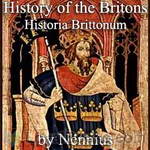 History of the Britons (Historia Brittonum)
History of the Britons (Historia Brittonum)
Although the origin of this book is much debated it remains, perhaps, one of the earliest recorded histories of Britain. It was believed that Nennius wrote the book around 796AD. If indeed he wrote this record, Nennius is recognised as being a teller, and embellisher, of historic characters and events.This book remains notable however, as one of the earliest that mention Arthur (The King of Arthurian legend). | |
By: Madame de La Fayette (1634-1693) | |
|---|---|
 The Princess of Cleves
The Princess of Cleves
| |
 The Princess De Montpensier
The Princess De Montpensier
| |
By: Alvar Núñez Cabeza de Vaca (ca. 1490/1507 - ca.1557/1579) | |
|---|---|
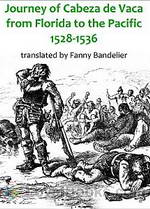 The Journey of Alvar Núñez Cabeza de Vaca
The Journey of Alvar Núñez Cabeza de Vaca
Few stories of shipwreck and survival can equal that of the 16th century Spaniard Alvar Núñez Cabeza de Vaca who, cast ashore near present day (USA) Tampa Bay, Florida, in 1528, survived eight years of hand-to-mouth existence among the Indians of the South and Southwest, and who walked on foot across the plains to the Pacific Coast, arriving in Mexico in 1536. In 1542 he published an account of his adventures, and the present reading is based on Fanny Bandelier’s English translation of that text... | |
By: Azel Ames (1845-1908) | |
|---|---|
 The Mayflower and Her Log; July 15, 1620-May 6, 1621
The Mayflower and Her Log; July 15, 1620-May 6, 1621
| |
By: Glenn D. Bradley (1884-1930) | |
|---|---|
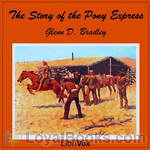 The Story of the Pony Express
The Story of the Pony Express
The Story of the Pony Express offers an in depth account behind the need for a mail route to connect the eastern U.S. with the rapidly populating west coast following the gold rush of California, the springing up of lumber camps, and all incidental needs arising from the settling of the western frontier. Here we learn of the inception of the Pony Express, its formation, successes, failures, facts, statistics, combined with many anecdotes and names of the people who were an integral part of this incredible entity which lasted but less than two years, yet was instrumental in the successful settlement of two thirds of the land mass comprising the expanding country... | |
By: Mór Jókai (1825-1904) | |
|---|---|
 Halil the Pedlar A Tale of Old Stambul
Halil the Pedlar A Tale of Old Stambul
| |
 The Day of Wrath
The Day of Wrath
| |
By: Robert Sterling Yard (1861-1945) | |
|---|---|
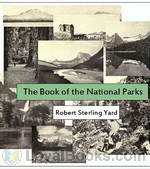 The Book of the National Parks
The Book of the National Parks
Robert Sterling Yard (February 1, 1861 – May 17, 1945) was an American writer, journalist, and wilderness activist. Born in Haverstraw, New York, Yard graduated from Princeton University and spent the first twenty years of his career in the editing and publishing business. In 1915, he was recruited by his friend Stephen Mather to help publicize the need for an independent national park agency. Their numerous publications were part of a movement that resulted in legislative support for a National Park Service (NPS) in 1916... | |
By: Eddie Rickenbacker (1890-1973) | |
|---|---|
 Fighting the Flying Circus
Fighting the Flying Circus
This is the WWI memoirs of Medal of Honor winner, Capt Eddie Rickenbacker. He fought in and eventually became commander of the 94th "Hat-in-the-Ring" Squadron, which ended the war with the highest number of air victories of any American squadron. The circus mentioned in the title refers to the German squadron commanded by the famous Red Baron, Manfred von Richthofen. (Introduction by Brett W. Downey) | |
By: Robert Hugh Benson (1871-1914) | |
|---|---|
 The King's Achievement
The King's Achievement
| |
By: Anna Green Winslow (1759-1779) | |
|---|---|
 Diary of Anna Green Winslow A Boston School Girl of 1771
Diary of Anna Green Winslow A Boston School Girl of 1771
| |
By: George-Günther Freiherr von Forstner (1882-1940) | |
|---|---|
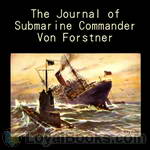 The Journal of Submarine Commander Von Forstner
The Journal of Submarine Commander Von Forstner
The Journal of Submarine Commander Von Forstner is a graphic account of WWI submarine warfare. Forstner was the commander of German U-boat U-28. His journal, first published 1916, gives a gritty picture of daily life inside a submarine and details several torpedo attacks on Allied shipping. The 1917 translation of Forstner’s journal into English was unquestionably intended to bolster the Allied war effort. In the foreword, the translator states: “Nothing at the present day has aroused such fear as this invisible enemy, nor has anything outraged the civilized world like the tragedies caused by the German submarines... | |
By: May Kellogg Sullivan | |
|---|---|
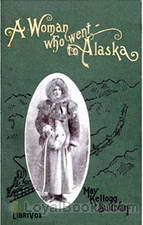 A Woman Who Went to Alaska
A Woman Who Went to Alaska
Alaska has only been a state since 1959, and the breathtaking terrain remains mostly unspoiled and natural. In modern times, many of us have had the pleasure of visiting Alaska via a luxurious cruise ship, where we enjoyed gourmet meals, amazing entertainment, and a climate-controlled environment. It's easy to also book a land package that enables you to see more of the country by train.Imagine what it was like to visit the same wild, untamed countryside in 1899. Instead of boarding a sleek, stylish cruise ship, you travel for weeks on a steamer... | |
By: Gaius Julius Caesar | |
|---|---|
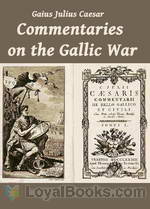 Commentaries on the Gallic War
Commentaries on the Gallic War
Commentarii de Bello Gallico (English: Commentaries on the Gallic War) is Julius Caesar's firsthand account of the Gallic Wars, written as a third-person narrative. In it Caesar describes the battles and intrigues that took place in the nine years he spent fighting local armies in Gaul that opposed Roman domination.The work has been a mainstay in the teaching of Latin to schoolchildren, its simple, direct prose lending itself to that purpose. It begins with the frequently quoted phrase "Gallia est omnis divisa in partes tres", sometimes quoted as "Omnia Gallia in tres partes divisa est", meaning "All Gaul is divided into three parts". | |
By: E. Gordon Browne (1871-1926) | |
|---|---|
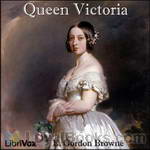 Queen Victoria
Queen Victoria
This book is about the life of Queen Victoria (1819 to 1901). All nine of her children married into the royal houses of Europe. She became the longest reigning monarch and more. This book is a fascinating read about the woman behind the British Empire. | |
By: Emerson Hough (1857-1923) | |
|---|---|
 The Story of the Outlaw A Study of the Western Desperado
The Story of the Outlaw A Study of the Western Desperado
| |
 The Passing of the Frontier; a chronicle of the old West
The Passing of the Frontier; a chronicle of the old West
| |
By: W. Hamilton Gibson (1850-1896) | |
|---|---|
 My Studio Neighbors
My Studio Neighbors
| |
By: William Godwin (1756-1836) | |
|---|---|
 Lives of the Necromancers
Lives of the Necromancers
| |
By: Gilbert Parker (1862-1932) | |
|---|---|
 Old Quebec The Fortress of New France
Old Quebec The Fortress of New France
| |
 Seats of The Mighty
Seats of The Mighty
| |
 The Trail of the Sword
The Trail of the Sword
| |
By: M. François Guizot (1787-1874) | |
|---|---|
 Memoirs To Illustrate The History Of My Time Volume 1
Memoirs To Illustrate The History Of My Time Volume 1
| |
By: Sarah Morgan Dawson (1842-1909) | |
|---|---|
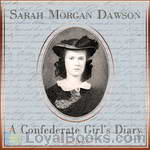 A Confederate Girl's Diary
A Confederate Girl's Diary
Sarah Morgan Dawson was a young woman of 20 living in Baton Rouge, Louisiana, when she began this diary. The American Civil War was raging. Though at first the conflict seemed far away, it would eventually be brought home to her in very personal terms. Her family's loyalties were divided. Sarah's father, though he disapproved of secession, declared for the South when Louisiana left the Union. Her eldest brother, who became the family patriarch when his father died in 1861, was for the Union, though he refused to take up arms against his fellow Southerners... | |
By: William Worthington Fowler (1833-1881) | |
|---|---|
 Woman on the American Frontier
Woman on the American Frontier
Many books describe the role of men during American history. However, at the same time, women did much: comforted, fought, helped, raised children, and much more. This book is full of mini-biographies of women in many places, and many ages- each chapter telling about a different subject. | |
By: Alfred de Musset (1810-1857) | |
|---|---|
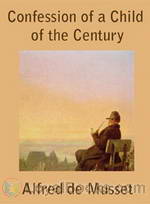 The Confession of a Child of the Century
The Confession of a Child of the Century
In this autobiographic novel, an aging man reflects on his past. We are witness to the relationships he has along the way, his mistakes, and finally- in the most unexpected and honorable way- the sudden developement of his belief in god. | |
By: Benjamin Disraeli (1804-1881) | |
|---|---|
 Alroy The Prince Of The Captivity
Alroy The Prince Of The Captivity
| |
 Lord George Bentinck A Political Biography
Lord George Bentinck A Political Biography
| |
By: Romain Rolland (1866-1944) | |
|---|---|
 Musicians of To-Day
Musicians of To-Day
| |
By: Oliver Herford (1863-1935) | |
|---|---|
 A Child's Primer Of Natural History
A Child's Primer Of Natural History
| |
By: Tobias Smollett (1721-1771) | |
|---|---|
 Travels through France and Italy
Travels through France and Italy
| |
By: Annie Wood Besant (1847-1933) | |
|---|---|
 The Case for India
The Case for India
| |
By: Burton Egbert Stevenson (1872-1962) | |
|---|---|
 A Soldier of Virginia
A Soldier of Virginia
| |
By: Jacob A. Riis (1849-1914) | |
|---|---|
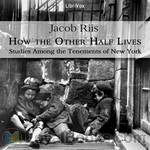 How the Other Half Lives: Studies Among the Tenements of New York
How the Other Half Lives: Studies Among the Tenements of New York
How the Other Half Lives: Studies Among the Tenements of New York (1890) was a pioneering work of photojournalism by Jacob Riis, documenting the squalid living conditions in New York City slums in the 1880s. It served as a basis for future muckraking journalism by exposing the slums to New York City’s upper and middle class. The title of the book is a reference to a phrase of François Rabelais, who wrote in Pantagruel: "one half of the world does not know how the other half lives". | |
By: Anne MacLanahan Grenfell (1885-1938) | |
|---|---|
 Le Petit Nord
Le Petit Nord
A collection of letters from Anne (MacLanahan) Grenfell, future wife of Sir Wilfred Grenfell, regarding her year of missionary service at the orphanage in St. Anthony, Newfoundland and Labrador, Canada. | |
By: D. H. (David Henry) Montgomery (1837-1928) | |
|---|---|
 The Leading Facts of English History
The Leading Facts of English History
| |
By: editor: Frank Munsey | |
|---|---|
 The Scrap Book Sampler
The Scrap Book Sampler
18 works -- two non-fic articles & one short fiction or poetry each -- from issues March, April, May, June, July, & August 1906 of The Scrap Book, Volume 1, edited by Frank Munsey. As he states in the editorial of the April 1906 issue (Vol 1, Iss 2) this was a sort of supplement to the editor's popular monthly, Munsey's Magazine. The Scrap Book is very like an American version of Punch with many short, often humorous articles interspersed with at least one short story, some poetry, and several longer non-fic pieces. The Scrap Book ran up to 1922. | |
By: Thomas Dowler Murphy (1866-1928) | |
|---|---|
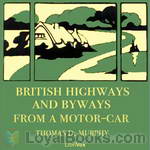 British Highways And Byways From A Motor Car
British Highways And Byways From A Motor Car
In this chronicle of a summer's motoring in Britain I have not attempted a guide-book in any sense, yet the maps, together with the comments on highways, towns, and country, should be of some value even in that capacity. I hope, however, that the book, with its many illustrations and its record of visits to out-of-the way places, may be acceptable to those who may desire to tour Britain by rail or cycle as well as by motor car. Nor may it be entirely uninteresting to those who may not expect to visit the country in person but desire to learn more of it and its people. (Introduction by Thomas Dowler Murphy) | |
By: Edward S. Ellis (1840-1916) | |
|---|---|
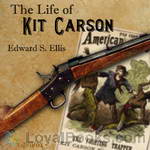 The Life of Kit Carson
The Life of Kit Carson
Christopher Carson, or as he was familiarly called, Kit Carson, was a man whose real worth was understood only by those with whom he was associated or who closely studied his character. He was more than hunter, trapper, guide, Indian agent and Colonel in the United States Army....His lot was cast on the extreme western frontier, where, when but a youth, he earned the respect of the tough and frequently lawless men with whom he came in contact. Integrity, bravery, loyalty to friends, marvelous quickness... | |
By: Edward Sylvester Ellis (1840-1916) | |
|---|---|
 Dewey and Other Naval Commanders
Dewey and Other Naval Commanders
| |